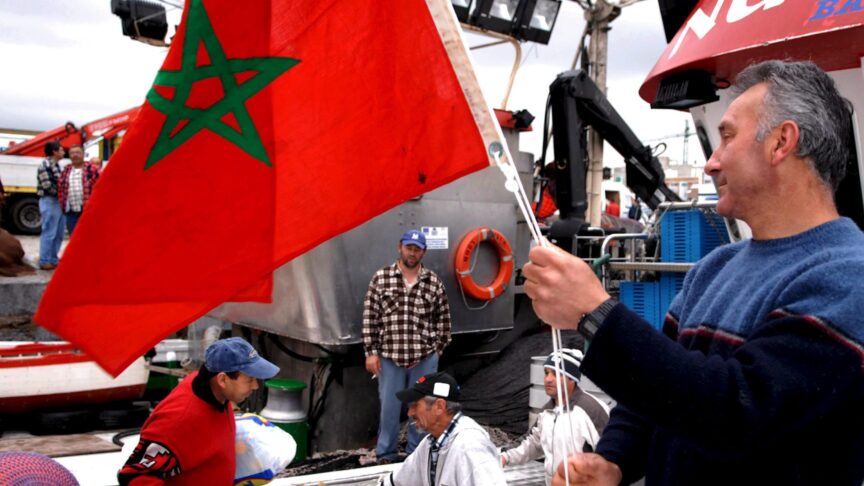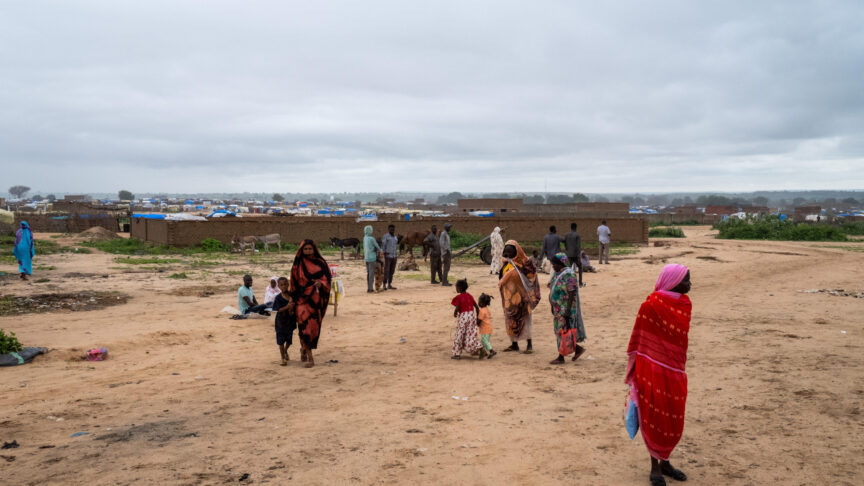Rebuilding Libya
Libya is in chaos, and Colonel Gaddafi seems determined to hang on to power at any expense. But he has already lost control of large swathes of the country, the security forces and bureaucracy, and it is not premature to start planning for a post-Gaddafi Libya.
It’s time to plan for a post-Gaddafi Libya. This may seem premature: the immediate challenge is surely to get rid of the Colonel in the first place or at least rein him in. But Gaddafi has already lost control of large swathes of the country, parts of the security forces and significant chunks of the bureaucracy. This Libyan state is splitting apart fast.
This is a fundamentally different process to that seen in Tunisia and Egypt. In both cases, popular uprisings forced political change but the basic structures of the state have survived. The Tunisian and Egyptian militaries helped guide both revolutions to their climaxes – law and order broke down for a few days in both cases but it was temporary.
The Libyan crisis appears to go much deeper. Even if Colonel Gaddafi somehow survives the week in power, he has lost control of so much of the state apparatus that there can be no return to normalcy. Reports that the regime is now using mercenaries against protestors (admittedly hard to verify) may signal the road ahead. The only way that Gaddafi can keep going is to stir up anarchy – and, as his son has said, risk civil war.
But what if, in one of those little twists of fate that crop up during revolutions, the Colonel was assassinated by a disloyal bodyguard tomorrow? The Libyan state would not miraculously revert to the status quo ante. The country’s civil and security hierarchies are already split between those who have bravely turned against the regime and those who have stood by it. It’s hard to believe there could be an easy reconciliation.
Furthermore – and taking us deep into territory that only country-specialists should really comment on – some of Libya’s powerful tribal leaders have publicly rejected the regime. Gaddafi’s state relied on a complex balancing of tribal interests that is now surely voided.
This may be too pessimistic, but there are certainly a lot of reasons to think that Libya’s position now is comparable less to that in Tunisia or Egypt than that in Côte d’Ivoire. Like Laurent Gbagbo, Colonel Gaddafi’s strategy for keeping power involves breaking up the state, deepening social and political rifts that will linger on whatever the outcome.
Rebuilding Libya if and when Gaddafi goes will thus be far harder than assisting reform in Tunisia and Egypt (if Gaddafi doesn’t go this time, just wait, as he’s sowing the seeds for his eventual downfall daily). In Tunis and Cairo, there are daunting challenges ahead, but for well-meaning outsiders like the EU the options are fairly straightforward: support civil society and political party-building, unobtrusively comment on constitutional matters if asked and perhaps assist in police reform… all familiar development work.
In Libya, on the other hand, a far greater initial political challenge potentially lies ahead. This will be mediating the basic terms for rebuilding the post-Gaddafi state. Who should be part of that process and who is too compromised? Will there be a purge of military elements that stood by Gaddafi? What is the role of the tribes in shaping future politics?
What role could outsiders play in this process? If Gaddafi falls quickly, it’s possible that the main forces within Libya will carve out the terms for the country’s future without much external assistance. If the conflict goes on, however, there will inevitably be calls for international mediation – if it gets really bad, with major refugee flows into Tunisia, Egypt and northwards across the Mediterranean, there’ll be calls for peacekeepers too.
Who would intervene in such a scenario, diplomatically or even militarily? Colonel Gaddafi has been a champion of the African Union, but the AU is unlikely to play a major role north of the Sahara. The League of Arab States (LAS) could take a diplomatic role – or the Egyptian and Tunisian armed forces might try a “fraternal” intervention.
Then there’s the Europeans. The initial EU response to events in Libya was as confused as its earlier engagement on Egypt, thanks mainly to Italian equivocations. Nonetheless, it has started to toughen its posture considerably in the last few days and the UK and France backed a hard line on Gaddafi in a Security Council statement this week. If the Libyan situation deteriorates, there’s simply no way the EU can avoid involvement.
In a well-calibrated statement on Tuesday, Catherine Ashton called for a “Libyan-led” dialogue to resolve the crisis. I’m currently sitting in Abu Dhabi and don’t pretend to know what planning is underway in Brussels on Libya. If I were involved in that planning, I’d be thinking through three options to deal with worst-case scenarios:
- Deploying a high-level EU mediation team, coordinated with the UN, LAS and other actors, in the next few weeks (a team should be on standby very soon);
- A major humanitarian effort if the situation gets significantly worse (Kristalina Georgieva, the Commissioner dealing with aid, has spoken of her concern about the lack of existing aid networks in Libya, underlining the problems involved);
- Some sort of military/police peace operation, whether under an EU flag or as part of larger UN effort (think of the mix of EU and non-EU forces in Lebanon).
That may sound a stretch – but the scale of the potential political challenge in Libya is only starting to become clear, and Colonel Gaddafi’s behavior in the days ahead could well make matters much worse. It’s imperative that we know what to do once he’s gone.
The European Council on Foreign Relations does not take collective positions. ECFR publications only represent the views of their individual authors.


